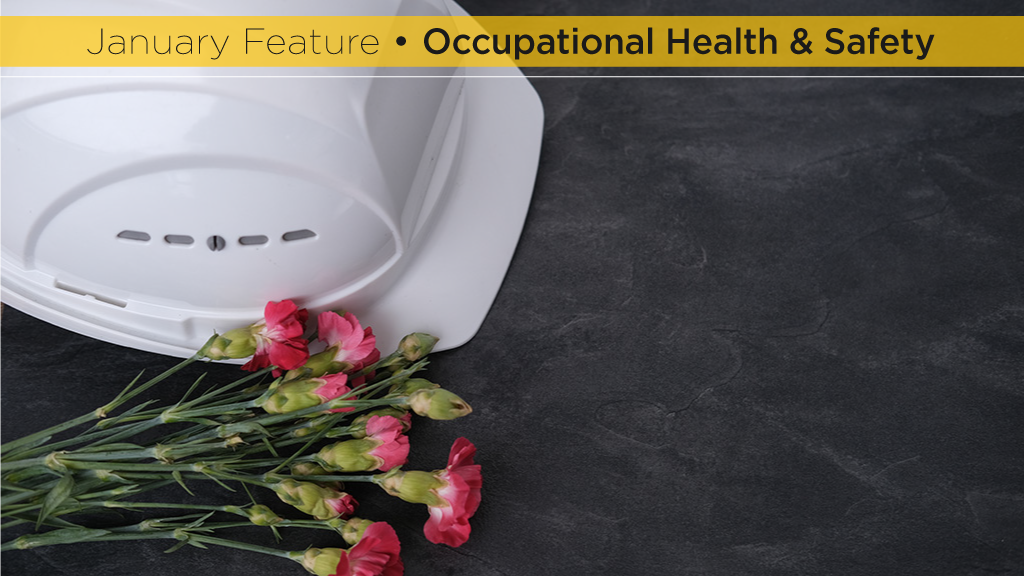A series of B.C. Supreme Court (BCSC) cases, with the latest in December 2023, has laid bare the traumatic impact witnessing a severe injury or death on a construction site can have on employees’ mental health, family, and ability to work.
The cases, involving PSI Concrete Pumping employees, stem from a 2016 Chilliwack incident where South Korean company KCP Heavy Industries Co. Ltd. (KCP) pumper truck’s foot collapsed sending a concrete boom crashing down on workers, killing one and severely injuring another. A WorkSafeBC investigation cleared PSI of any fault and the suits are against KCP, as the incident is attributed to a defective manufactured foot plate.
In December 2023, concrete worker Steven Sandhu was awarded $369,164.15 for lost wages, pain and suffering over a three-year period prior to his ability to return to work. He is one of three PSI employees claiming to have suffered psychological trauma.
Sandhu’s foreman Gerson Alvarado suffered paralysis from the chest down while Sandhu’s friend Sebastian Gomez Obando was killed. Sandhu tried to pull Obando from under the fallen boom while Alvarado screamed for help. Sandhu, 22 at the time, suffered years of critical incident traumatic stress, not wanting to leave the house, substance abuse and was prone to violent outbursts.
“The evidence establishes that although he was physically unscathed, Mr. Sandhu experienced significant psychological harm after the accident as a result of witnessing the gruesome death and injury of a close friend and co-worker,” the judge ruled.
Robert Clegg, 42 at the time, also suffered severe post trauma distress. In a September 2022 judgment, the concrete pump operator who was working near the fatal crash, was awarded $4.177 million for pain and suffering, lost wages and future lost wages, housekeeping ability and care.
“Mr. Clegg saw Mr. Alvarado hit in the chest by the falling boom and bend backwards, sustaining gruesome compound fractures. The boom hit Mr. Obando, who was instantly killed. Mr. Clegg was sprayed with his blood,” the court judgment said.
Clegg passed out at the scene, was hospitalized and later placed under psychiatric care. His work and home life unravelled. Attempts to return to work failed; other forms of work also failed, despite trauma counselling and other therapies. He experiences flashbacks, hallucinations and trouble sleeping.
“He testified that he is miserable, irritable and described his life as a living hell. He testified that he either attempted or contemplated suicide approximately nine times and, as a result, has been committed to mental institutions on several occasions,” the judgment said.
There is still a third party, Henry Brizuela named in the suits, claiming psychological trauma, waiting to be heard in court, according to court records.
So far, damages handed down to the employees and survivor’s relatives in the KCP suit have topped $20 million.
In September 2022, an award of $15.5 million went to Alvarado, who was 26 at the time, and remains a paraplegic needing care.
Months earlier in 2022, the widow of Obando filed for compensation under the Family Compensation Act seeking support and was awarded $874,643.45.
KCP did not file a statement of defense resulting in a default judgment on June 22, 2018 when the five claimants came to court. The BCSC decided to hear each claim separately.
There is little Canadian information on the trauma of witnessing a traumatic construction event but a U.S. legal firm blog (Indianaworkers.com) maintains post traumatic stress disorder (PTSD) is a common condition.
“One in three people who experience a traumatic event will experience PTSD,” it said.
At 2023’s CONEXPO, construction worker and speaker Steven Kirby talked about narrowly escaping death in a trench explosion. While he healed physically, he spiralled down mentally with drinking, gambling and bottling up the emotions.
Construction workers have an image of toughness, but Kirby had no idea of how to deal with his emotions until he sought counselling.
“The accident nearly killed me, but then my attitude to mental health nearly got me as well,” Kirby said.
BC Construction Safety Alliance (BCCSA) executive director Mike McKenna said the perception of construction workers being tough may not always mirror the reality of their personal lives.
BCCSA has launched Re-Mind which provides support for workers caught between two identities as outlined in BCCSA’s video The Lone Hunter.
B.C. has no workplace requirement that those experiencing a traumatic incident be assessed.
Alexandra Skinner, media relations, said WorkSafeBC does offer a Critical Incident Response Program, a voluntary service to assist workers who have witnessed or experienced traumatic workplace incidents including injuries, fatalities, violence, threats and disasters.
Accepted construction industry trauma claims are: 2018, 20; 2019, 41; 2020, 32; 2021, 51; and 2022, 36. Of those 180 claims, Skinner said 78 per cent have returned to work and of those remaining, there “may be other factors and issues that interfere with a worker’s capacity to return to work successfully.”



Recent Comments
comments for this post are closed